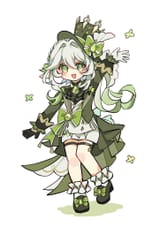Anonymous
6/27/2025, 11:03:38 PM No.95966225
Why are "small people bandits" the go-to "These are technically sapient, but they are criminals in the wilderness, so please do not feel bad about summarily executing them" enemies in starter adventures for D&D and D&D-branched fantasy RPGs?
I am sure many of us are familiar with starter adventures that begin with tacitly sanctioned slaughter of "small people bandits." The Sunless Citadel's opening sequence is against kobolds, and Phandelver starts off with goblins, for example.
Recently, I GMed Draw Steel's The Delian Tomb, Draw Steel's Road to Broadhurst (twice, for separate players), and Daggerheart's Sablewood Messengers. All of these are starter adventures for level 1 characters. The Delian Tomb's first two fights are against goblin bandits, Road to Broadhurst kicks off with radenwight (small ratfolk) bandits, and Sablewood Messengers begins with ribbet (small frogfolk) bandits. In all four of these runs, the players elected to nonlethally incapacitate and spare the little ones, probably because I depicted them in a vaguely sympathetic and cutesy fashion.
I have never seen a single one of these starter adventurers discuss what happens if the PCs actually commit to sparing these small people.
Additionally, I have been playtesting a starter adventure for an indie RPG, Tactiquest. The first three fights are, of course, against goblin(oid)s and kobolds.
Why does it have to be this way? Why do starter adventures for these RPGs insist on initiating PCs into their heroic careers by having them beat up, and quite possibly kill, small and desperate criminals in the wilderness?
I am sure many of us are familiar with starter adventures that begin with tacitly sanctioned slaughter of "small people bandits." The Sunless Citadel's opening sequence is against kobolds, and Phandelver starts off with goblins, for example.
Recently, I GMed Draw Steel's The Delian Tomb, Draw Steel's Road to Broadhurst (twice, for separate players), and Daggerheart's Sablewood Messengers. All of these are starter adventures for level 1 characters. The Delian Tomb's first two fights are against goblin bandits, Road to Broadhurst kicks off with radenwight (small ratfolk) bandits, and Sablewood Messengers begins with ribbet (small frogfolk) bandits. In all four of these runs, the players elected to nonlethally incapacitate and spare the little ones, probably because I depicted them in a vaguely sympathetic and cutesy fashion.
I have never seen a single one of these starter adventurers discuss what happens if the PCs actually commit to sparing these small people.
Additionally, I have been playtesting a starter adventure for an indie RPG, Tactiquest. The first three fights are, of course, against goblin(oid)s and kobolds.
Why does it have to be this way? Why do starter adventures for these RPGs insist on initiating PCs into their heroic careers by having them beat up, and quite possibly kill, small and desperate criminals in the wilderness?
